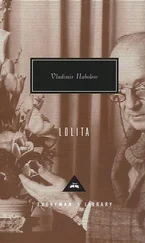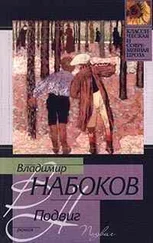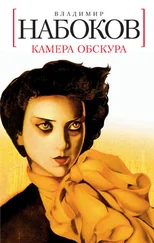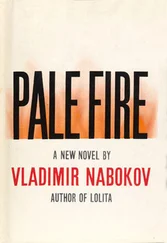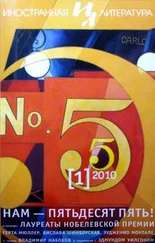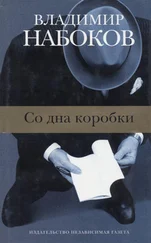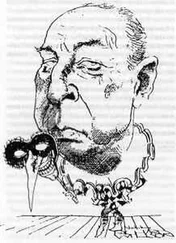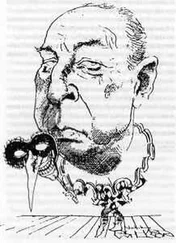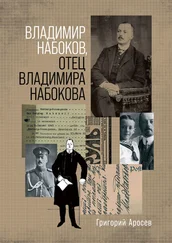Владимир Набоков - Ada, or Ador - A Family Chronicle
Здесь есть возможность читать онлайн «Владимир Набоков - Ada, or Ador - A Family Chronicle» весь текст электронной книги совершенно бесплатно (целиком полную версию без сокращений). В некоторых случаях можно слушать аудио, скачать через торрент в формате fb2 и присутствует краткое содержание. Жанр: Классическая проза, Современные любовные романы, на английском языке. Описание произведения, (предисловие) а так же отзывы посетителей доступны на портале библиотеки ЛибКат.
- Название:Ada, or Ador: A Family Chronicle
- Автор:
- Жанр:
- Год:неизвестен
- ISBN:нет данных
- Рейтинг книги:3 / 5. Голосов: 1
-
Избранное:Добавить в избранное
- Отзывы:
-
Ваша оценка:
- 60
- 1
- 2
- 3
- 4
- 5
Ada, or Ador: A Family Chronicle: краткое содержание, описание и аннотация
Предлагаем к чтению аннотацию, описание, краткое содержание или предисловие (зависит от того, что написал сам автор книги «Ada, or Ador: A Family Chronicle»). Если вы не нашли необходимую информацию о книге — напишите в комментариях, мы постараемся отыскать её.
Ada, or Ador: A Family Chronicle — читать онлайн бесплатно полную книгу (весь текст) целиком
Ниже представлен текст книги, разбитый по страницам. Система сохранения места последней прочитанной страницы, позволяет с удобством читать онлайн бесплатно книгу «Ada, or Ador: A Family Chronicle», без необходимости каждый раз заново искать на чём Вы остановились. Поставьте закладку, и сможете в любой момент перейти на страницу, на которой закончили чтение.
Интервал:
Закладка:
He was a very slow writer. It took him six years to write the first draft and dictate it to Miss Knox, after which he revised the typescript, rewrote it entirely in long hand (1963–1965) and redictated the entire thing to indefatigable Violet, whose pretty fingers tapped out a final copy in 1967. E, p, i — why ‘y,’ my dear?
5
Ada, who resented the insufficiency of her brother’s fame, felt soothed and elated by the success of The Texture of Time (1924). That work, she said, always reminded her, in some odd, delicate way, of the sun-and-shade games she used to play as a child in the secluded avenues of Ardis Park. She said she had been somehow responsible for the metamorphoses of the lovely larvae that had woven the silk of ‘Veen’s Time’ (as the concept was now termed in one breath, one breeze, with ‘Bergson’s Duration,’ or ‘Whitehead’s Bright Fringe’). But a considerably earlier and weaker work, the poor little Letters from Terra, of which only half a dozen copies existed — two in Villa Armina and the rest in the stacks of university libraries — was even closer to her heart because of its nonliterary associations with their 1892-93 sojourn in Manhattan. Sixty-year-old Van crustily and contemptuously dismissed her meek suggestion to the effect that it should be republished, together with the Sidra reflections and a very amusing anti-Signy pamphlet on Time in Dreams. Seventy-year-old Van regretted his disdain when Victor Vitry, a brilliant French director, based a completely unauthorized picture on Letters from Terra written by ‘Voltemand’ half a century before.
Vitry dated Theresa’s visit to Antiterra as taking place in 1940, but 1940 by the Terranean calendar, and about 1890 by ours. The conceit allowed certain pleasing dips into the modes and manners of our past (did you remember that horses wore hats — yes, hats — when heat waves swept Manhattan?) and gave the impression — which physics-fiction literature had much exploited — of the capsulist traveling backward in terms of time. Philosophers asked nasty questions, but were ignored by the wishing-to-be-gulled moviegoers.
In contrast to the cloudless course of Demonian history in the twentieth century, with the Anglo-American coalition managing one hemisphere, and Tartary, behind her Golden Veil, mysteriously ruling the other, a succession of wars and revolutions were shown shaking loose the jigsaw puzzle of Terrestrial autonomies. In an impressive historical survey of Terra rigged up by Vitry — certainly the greatest cinematic genius ever to direct a picture of such scope or use such a vast number of extras (some said more than a million, others, half a million men and as many mirrors) — kingdoms fell and dictatordoms rose, and republics, half-sat, half-lay in various attitudes of discomfort. The conception was controversial, the execution flawless. Look at all those tiny soldiers scuttling along very fast across the trench-scarred wilderness, with explosions of mud and things going pouf-pouf in silent French now here, now there!
In 1905, Norway with a mighty heave and a long dorsal ripple unfastened herself from Sweden, her unwieldy co-giantess, while in a similar act of separation the French parliament, with parenthetical outbursts of vive émotion, voted a divorce between State and Church. Then, in 1911, Norwegian troops led by Amundsen reached the South Pole and simultaneously the Italians stormed into Turkey. In 1914 Germany invaded Belgium and the Americans tore up Panama. In 1918 they and the French defeated Germany while she was busily defeating Russia (who had defeated her own Tartars some time earlier). In Norway there was Siegrid Mitchel, in America Margaret Undset, and in France, Sidonie Colette. In 1926 Abdel-Krim surrendered, after yet another photogenic war, and the Golden Horde again subjugated Rus. In 1933, Athaulf Hindler (also known as Mittler — from ‘to mittle,’ mutilate) came to power in Germany, and a conflict on an even more spectacular scale than the 1914–1918 war was under way, when Vitry ran out of old documentaries and Theresa, played by his wife, left Terra in a cosmic capsule after having covered the Olympic Games held in Berlin (the Norwegians took most of the prizes, but the Americans won the fencing event, an outstanding achievement, and beat the Germans in the final football match by three goals to one).
Van and Ada saw the film nine times, in seven different languages, and eventually acquired a copy for home use. They found the historical background absurdly farfetched and considered starting legal proceedings against Vitry — not for having stolen the L.F.T. idea, but for having distorted Terrestrial politics as obtained by Van with such diligence and skill from extrasensorial sources and manic dreams. But fifty years had elapsed, and the novella had not been copyrighted; in fact, Van could not even prove that ‘Voltemand’ was he. Reporters, however, ferreted out his authorship, and in a magnanimous gesture, he allowed it to be publicized.
Three circumstances contributed to the picture’s exceptional success. One factor was, of course, that organized religion, disapproving of Terra’s appeal to sensation-avid sects, attempted to have the thing banned. A second attraction came from a little scene that canny Vitry had not cut out: in a flashback to a revolution in former France, an unfortunate extra, who played one of the under-executioners, got accidentally decapitated while pulling the comedian Steller, who played a reluctant king, into a guillotinable position. Finally, the third, and even more human reason, was that the lovely leading lady, Norwegian-born Gedda Vitry, after titillating the spectators with her skimpy skirts and sexy rags in the existential sequences, came out of her capsule on Antiterra stark naked, though, of course, in miniature, a millimeter of maddening femininity dancing in ‘the charmed circle of the microscope’ like some lewd elf, and revealing, in certain attitudes, I’ll be damned, a pinpoint glint of pubic floss, gold-powered!
L.F.T. tiny dolls, L.F.T. breloques of coral and ivory, appeared in souvenir shops, from Agony, Patagonia, to Wrinkleballs, Le Bras d’Or. L.F.T. clubs sprouted. L.F.T. girlies minced with mini-menus out of roadside snackettes shaped like spaceships. From the tremendous correspondence that piled up on Van’s desk during a few years of world fame, one gathered that thousands of more or less unbalanced people believed (so striking was the visual impact of the Vitry-Veen film) in the secret Government-concealed identity of Terra and Antiterra. Demonian reality dwindled to a casual illusion. Actually, we had passed through all that. Politicians, dubbed Old Felt and Uncle Joe in forgotten comics, had really existed. Tropical countries meant, not only Wild Nature Reserves but famine, and death, and ignorance, and shamans, and agents from distant Atomsk. Our world was, in fact, mid-twentieth-century. Terra convalesced after enduring the rack and the stake, the bullies and beasts that Germany inevitably generates when fulfilling her dreams of glory. Russian peasants and poets had not been transported to Estotiland, and the Barren Grounds, ages ago — they were dying, at this very moment, in the slave camps of Tartary. Even the governor of France was not Charlie Chose, the suave nephew of Lord Goal, but a bad-tempered French general.
6
Nirvana, Nevada, Vaniada. By the way, should I not add, my Ada, that only at the very last interview with poor dummy-mummy, soon after my premature — I mean, premonitory — nightmare about, ‘You can, Sir,’ she employed mon petit nom, Vanya, Vanyusha — never had before, and it sounded so odd, so tend… (voice trailing off, radiators tinkling).
Читать дальшеИнтервал:
Закладка:
Похожие книги на «Ada, or Ador: A Family Chronicle»
Представляем Вашему вниманию похожие книги на «Ada, or Ador: A Family Chronicle» списком для выбора. Мы отобрали схожую по названию и смыслу литературу в надежде предоставить читателям больше вариантов отыскать новые, интересные, ещё непрочитанные произведения.
Обсуждение, отзывы о книге «Ada, or Ador: A Family Chronicle» и просто собственные мнения читателей. Оставьте ваши комментарии, напишите, что Вы думаете о произведении, его смысле или главных героях. Укажите что конкретно понравилось, а что нет, и почему Вы так считаете.

